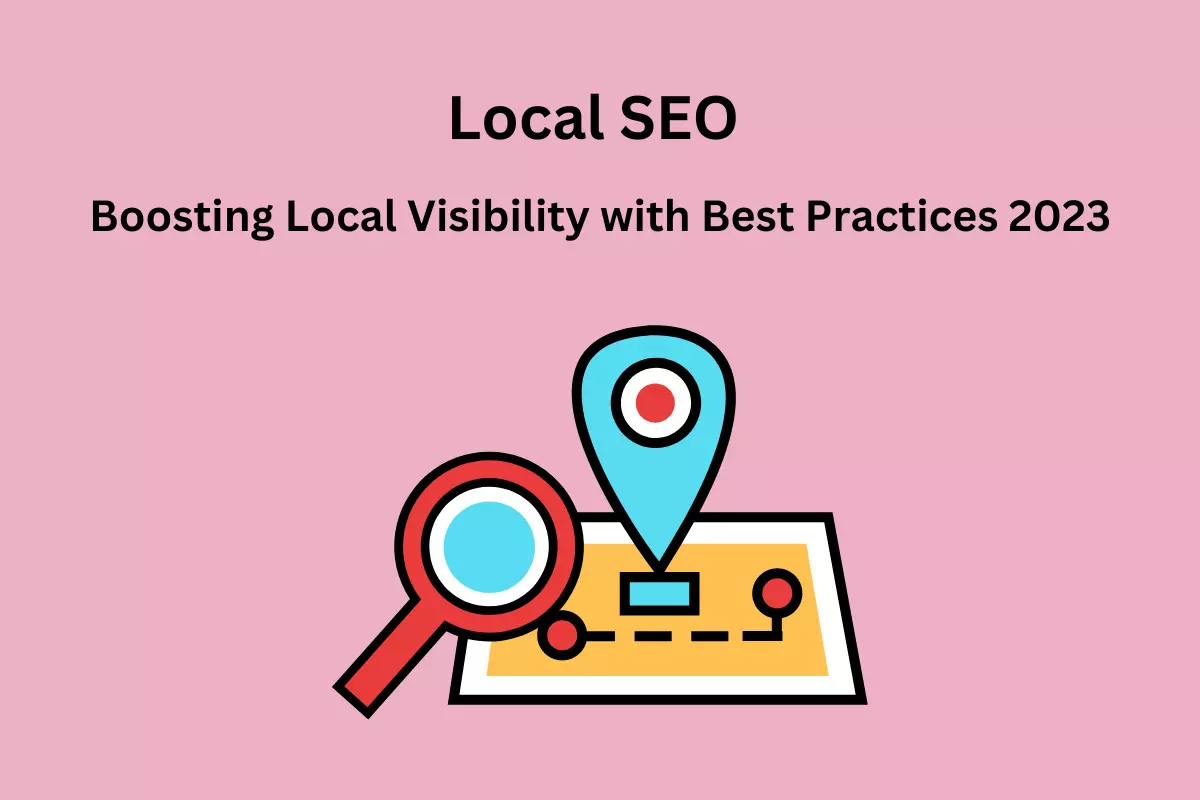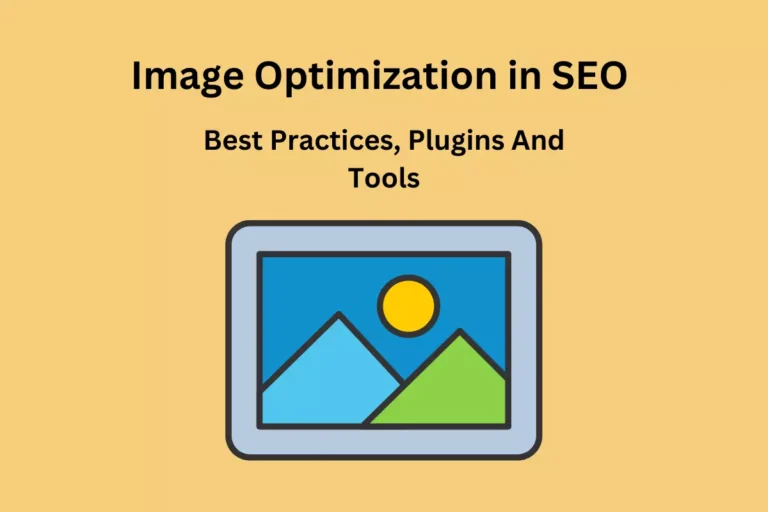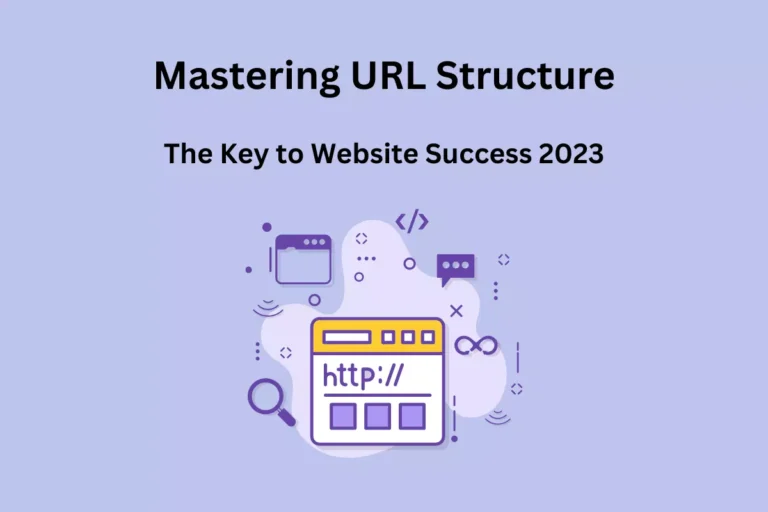In today’s digital age, local businesses face intense competition in the online space.
To stand out from the crowd and attract targeted customers, optimizing your local SEO is crucial.
In this article, let’s explore the world of local SEO, uncovering effective techniques and best practices to boost your local visibility and drive more foot traffic to your business.
Additional resources:
Top 5 Free Keyword Research Tools For SEO
10 Tips For Effective Content Optimization

Understanding Local SEO
Local SEO is a branch of search engine optimization that focuses on optimizing a website’s visibility in local search results.
It involves tailoring your online presence to target local customers who are actively seeking products or services in your area.
Importance of Local SEO
Local SEO focuses on improving a business’s visibility within a specific geographical area.
By incorporating targeted keywords, such as location-based phrases and industry-specific terms, into your website content, you can attract relevant local traffic and potential customers.
One of the significant advantages of Local SEO is its ability to target users at the precise moment they are actively seeking local information.
By ensuring your website is optimized for local searches, you increase your chances of appearing in the coveted “local pack” of search engine results, which prominently displays local businesses related to the user’s query.
Furthermore, Local SEO enables small businesses to compete with larger corporations on a level playing field.
Through local directory listings, online reviews, and consistent NAP (Name, Address, Phone number) information across various platforms, you can build trust and credibility in your local community.
To maximize the benefits of Local SEO, it is crucial to implement an effective strategy that includes website optimization, creating location-specific landing pages, managing online reviews, and leveraging local business directories.
Differentiating Local SEO from Traditional SEO
Local SEO focuses on improving a business’s visibility within a specific geographical area, emphasizing local search results and targeting local customers.
It involves optimizing various aspects of a website, including on-page elements, content, and backlinks, while incorporating location-based keywords and phrases to attract local traffic.
On the other hand, traditional SEO has a broader scope, aiming to increase a website’s visibility and organic search rankings on a global or national level.
It involves optimizing a website for relevant keywords and topics, generating high-quality backlinks, and improving overall user experience.
One key differentiator is the utilization of Google Business Profile, a critical tool for Local SEO.
It allows businesses to create a localized online presence, providing vital information such as business hours, address, and contact details.
This information is then displayed prominently in local search results, enhancing visibility for potential customers.
Another distinguishing factor is the importance of online reviews and ratings in Local SEO.
Positive reviews can significantly impact a local business’s reputation and attract more customers,
as search engines take into account the quantity and quality of reviews when ranking local businesses.
Boosting Local Visibility
To enhance your local visibility and outshine your competitors, employ the following techniques:
Google My Business (GMB) Optimization
GMB is a powerful tool for local businesses to showcase their presence on Google.
Optimize your GMB profile to ensure accurate and comprehensive information about your business.
- Claim and Verify Your GMB Listing
Start by claiming your GMB listing and verifying your ownership.
This process confirms that you are the rightful owner of the business and allows you to manage your listing effectively.
- Provide Accurate Business Information
Ensure that your GMB profile includes accurate and up-to-date information such as business name, address, phone number (NAP), website URL, and operating hours.
Consistency across all online directories is crucial for local SEO.
- Optimize GMB Description and Categories
Craft a compelling and keyword-rich description that highlights your unique value proposition.
Select relevant categories that accurately represent your business to improve search relevance.
Local Directory Listings
Maximize your online presence by listing your business on local directories and platforms.
This helps search engines validate your business information and improves your local SEO.
- Choose Relevant Directories
Identify reputable local directories and industry-specific platforms that align with your business niche.
Listing your business on these directories can drive targeted traffic and improve your local visibility.
- Consistency in NAP Information
Maintain consistent NAP information (name, address, phone number) across all directories to avoid
confusion and ensure search engines recognize your business as a trusted local entity.
- Encourage Customer Reviews
Positive customer reviews play a significant role in local SEO.
Encourage your satisfied customers to leave reviews on directories like Yelp, Google, and industry-specific platforms.
Respond to reviews, both positive and negative, to show engagement and build trust with potential customers.
Localized Content Creation
Creating localized content can help you connect with your target audience on a deeper level and establish your business as a local authority.
- Location-Specific Landing Pages
Develop dedicated landing pages that cater to specific locations you serve.
Optimize these pages with location-based keywords and provide valuable information about your products or services in those areas.
- Blogging for Local Audience
Write blog posts that address local topics, events, and trends.
Share insights, tips, and news that are relevant to your local audience.
Engage with readers by encouraging comments and fostering discussions.
- Showcasing Local Events and Community Involvement
Highlight your participation in local events, sponsorships, and community initiatives to showcase your commitment to the local community.
This not only builds brand loyalty but also improves your local visibility as people associate your business with local engagement and support.
Local SEO Best Practices
To ensure the effectiveness of your local SEO efforts, follow these best practices:
Keyword Research with Local Focus
Conduct thorough keyword research to identify location-specific keywords that your target audience is using.
Incorporate these keywords naturally into your website content, meta tags, headings, and image alt tags.
Consistent NAP Information
Maintain consistency in your business’s name, address, and phone number (NAP) across all online platforms.
Inaccurate or conflicting information can confuse search engines and potential customers, negatively impacting your local SEO.
Mobile-Friendly Website
Optimize your website for mobile devices, as an increasing number of local searches are performed on smartphones.
Ensure your website is responsive, loads quickly, and provides a seamless browsing experience on all devices.
Online Reviews and Ratings
Encourage satisfied customers to leave positive reviews and ratings on platforms such as Google, Yelp, and industry-specific review sites.
Respond promptly to reviews, both positive and negative, to show your dedication to customer satisfaction.
Local Backlinks
Build relationships with local businesses, organizations, and influencers to earn quality backlinks.
Collaborate on content, guest blog on local websites, and engage in local partnerships to enhance your online authority and local visibility.
Social Media Engagement
Utilize social media platforms to engage with your local audience.
Regularly post updates, promotions, and informative content related to your business and local community.
Respond to comments and messages promptly to foster customer relationships.
Online Directories and Citations
Ensure your business is listed accurately on popular online directories such as Google Business Profile, Bing Places, Yelp, and Yellow Pages.
Consistent and complete citations across these platforms help search engines understand your business and improve local rankings.
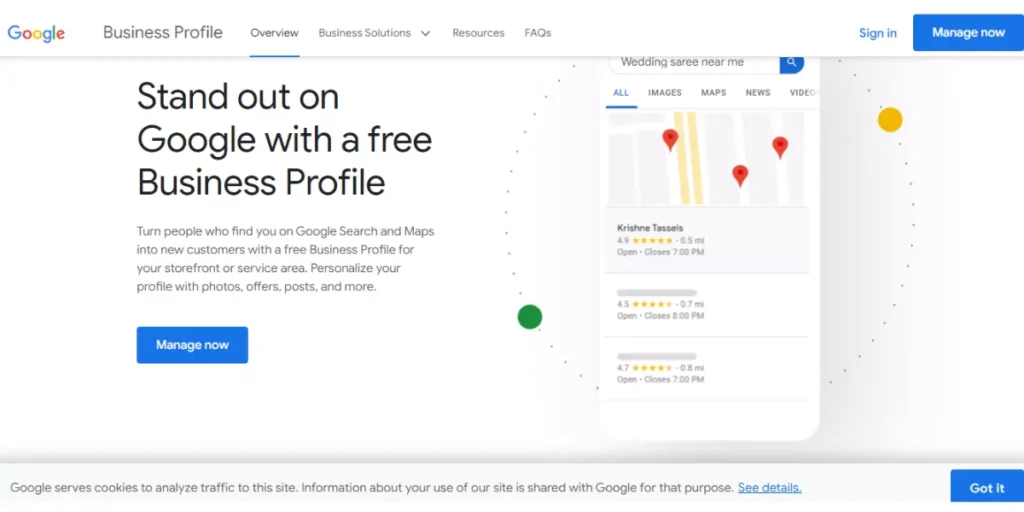
Monitor Local SEO Performance
Regularly track your local SEO performance using analytics tools such as Google Analytics and Google Search Console.
Monitor organic search traffic, keyword rankings, and user engagement metrics to identify areas for improvement and measure the success of your local SEO efforts.
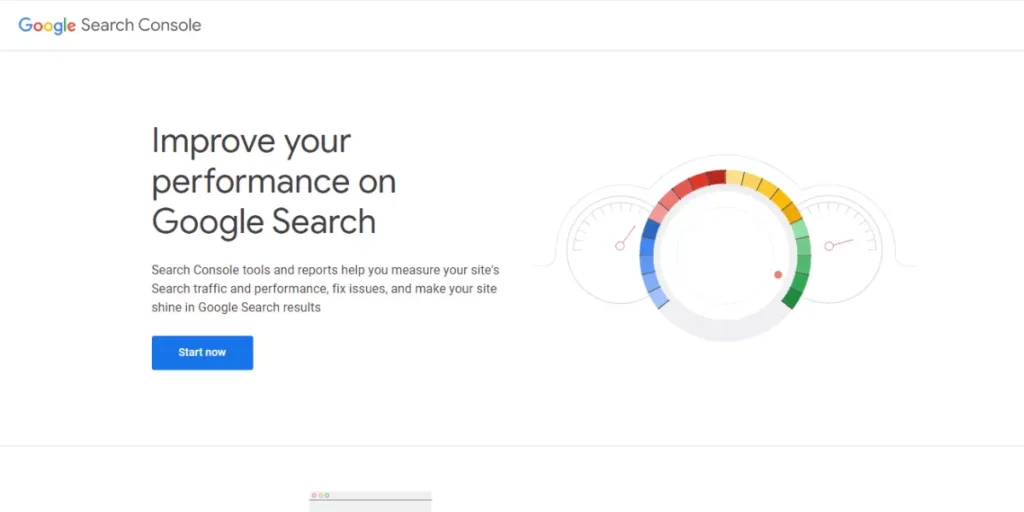
FAQ’s
What is local SEO and why is it important for businesses?
Local SEO refers to the process of optimizing a website to improve its visibility and ranking in local search results. It is important for businesses because it helps them target potential customers in their local area, increase online visibility, drive more foot traffic to physical stores, and gain a competitive edge over local competitors.
How does local SEO differ from traditional SEO?
Local SEO focuses on optimizing a website for local search queries and geographical relevance. It emphasizes location-specific keywords, online directories, and Google My Business profiles. Traditional SEO, on the other hand, aims to optimize a website for broader search queries and organic rankings on a national or global scale. It emphasizes general keywords, backlinks, and content optimization.
What are the key factors that influence local SEO rankings?
Several factors influence local SEO rankings, including the relevance and accuracy of business information (name, address, phone number), the proximity of the business to the searcher’s location, the quantity and quality of online reviews, the optimization of Google My Business listing, the presence of local keywords on the website, the overall website quality and user experience, and the consistency of NAP (Name, Address, Phone) information across different online platforms.
How can I optimize my website for local SEO?
To optimize your website for local SEO, you can:
Include location-specific keywords in your website content and meta tags.
Create a separate page for each location or service area.
Optimize your Google My Business profile with accurate and up-to-date information.
Encourage and manage online reviews from customers.
Build high-quality local citations and ensure consistent NAP information.
Optimize your website for mobile devices.
Use structured data markup to provide search engines with more information about your business.
Are online directories and citation sites important for local SEO?
Yes, online directories and citation sites are important for local SEO. They help search engines understand your business’s location and relevancy to local searches. Being listed in authoritative directories and citation sites can improve your local search visibility, increase your online presence, and provide valuable backlinks to your website. It’s crucial to ensure that your business information is consistent and accurate across all directories and citation sites.
Conclusion
Boosting local visibility through effective local SEO techniques and best practices is vital for businesses seeking to thrive in their local markets.
By optimizing your Google My Business profile, focusing on localized content, securing local backlinks, and maintaining consistent NAP information, you can attract more local customers and outshine your competition.
Stay proactive in implementing these strategies, adapt to the ever-evolving local search landscape, and monitor your performance to achieve long-term success in local SEO.
With a strong local online presence, your business can establish itself as a trusted local authority and attract a steady stream of targeted customers.
Now I would love to hear from you.
Make yourself known by leaving a comment here. I look forward to your response and welcome any other ideas as they emerge!
As a digital marketing consultant, My ultimate goal is to empower businesses to thrive in the digital landscape.
I believes that a well-executed digital strategy can transform a company’s online presence, drive growth, and create meaningful connections with target audience.
To Know More Click Here!

